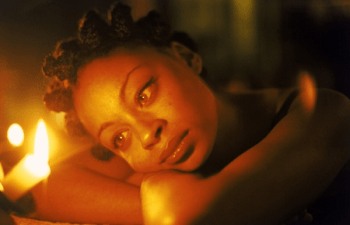PTSD: The Holiday Season's Unwelcome Guest
If you or someone you know has post-traumatic stress disorder, the current time of year might be particularly challenging. The northern hemisphere is well into autumn, and the extensive holiday season is upon us. Celebrations abound in religious and secular communities alike. Beginning in October and extending through December and even into January, many countries and traditions celebrate special things with gatherings, gifts, food, and fun.
Despite the way it sometimes appears, this is not a cozy, jolly time for everyone. It's becoming increasingly understood that the holiday season can exacerbate depression or even contribute to its development. The holiday season can also increase the distress associated with PTSD.
Prolonged Holiday Season Can Intensify Symptoms of PTSD
There are numerous distressing symptoms associated with post-traumatic stress disorder. The extended holiday season that is the hallmark of this time of year can heighten several aspects of PTSD.
[caption id="attachment_1362" align="aligncenter" width="350" caption="Sometimes PTSD makes you feel numb and want to withdraw. This can cause even more distress during the holiday season. "] [/caption]
[/caption]
With PTSD, great psychological distress can occur as a result of triggers. Things in the environment or thoughts, feelings, and memories can trigger intense stress and anxiety. When you have PTSD, the social gatherings, loud music, stress of preparation, and the expectations of the holidays can, quite literally, turn nightmarish.
Another common component of PTSD is the desire to avoid, perhaps even withdraw from, people and situations. However, this is a time of year when people are "supposed to" be outgoing, festive, and jovial. Feeling thrust into festive situations or feeling guilty for not doing so can exacerbate anxieety.
The emotional numbing associated with PTSD can also make this time of year painful. On top of that, hearing well-meaning people ask you what's wrong or tell you to relax or cheer up definitely isn't helpful.
How To Keep PTSD From Ruining Your Holiday Season
There are steps you can take to keep PTSD from ruining your holiday season.
- Define what a "good" holiday season means to you, and keep this handy.
- List what you want to do this season and what you'd rather not do.
- Choose a few events that won't be too anxiety-provoking, and bow out of those that will be too distressing.
- What about PTSD's habit of making it difficult to feel positive emotions? To help yourself feel the good of the season, consider keeping a gratitude journal. Each night before bed, list three things, even small ones, that made you feel good that day.
Post-traumatic stress disorder can make holidays especially tough, but it doesn't have to make them bleak. How do you deal with your PTSD symptoms this time of year? We could all benefit from each other's tips.
APA Reference
Peterson, T.
(2013, November 13). PTSD: The Holiday Season's Unwelcome Guest, HealthyPlace. Retrieved
on 2026, March 5 from https://www.healthyplace.com/blogs/anxiety-schmanxiety/2013/11/ptsd-the-holiday-seasons-unwelcome-guest
Author: Tanya J. Peterson, MS, NCC, DAIS
I would like to know more about how PTSD makes one feel numb and unable to feel positive emotions. I have this problem and would like to alleviate it.
Hello Paula,
There is so much to PTSD, including numbness and a general lack of positive emotions. There's a very informative blog about PTSD written on HealthyPlace by trauma expert Michele Rosenthal. The link is http://www.healthyplace.com/blogs/traumaptsdblog/. You might find some very helpful information there, in Michele's posts as well as in the comments section following each post. I hope you do find it useful.
To make this bearable, This christmas, i plan on making myself semiconscious so I can just sleep thru them and wake up when they are over. This is my plan, however, I don't recommend it for others. It will be just too painful and I have no other way out. I do not want to be awake, not at all. However, I will wake up on 12/27 and when I do I will be glad the holidays are over.
Holidays can be very difficult for many different reasons. Going "semiconscious" can be a good idea as long as it's achieved safely. Being semiconscious can mean allowing yourself to distance yourself psychologically from the chaos (etc.) around you. It can mean retreating to a secluded corner with an engaging book or making lists in your head to tune out critical words you don't want to hear. It can mean pretending you're in some twisted comedy and that you are merely an actress. It can mean meditation or prayer. You get the idea! Semiconsciousness can mean choosing not to engage emotionally with what's going on around you. It can be dangerous, though, to achieve this with substance use or self-harm. Now is the time to start planning ways to pull away from the holiday happenings without damaging yourself in the process. Perhaps enlisting the assistance of a therapist, friend, etc. might help you develop healthy strategies for disengaging this holiday season. Stay safe and be well.
I have always withdrawn from the shenanigans at work that people tried to force me into taking part in. But this year, I am retired and can call the shots. I plan on surrounding myself with others who suffer and we will have at least one quiet, spiritual celebration of gratitude - plus my AA group always has a gratitude meeting just before Christmas which is very special and quiet.
Hello Lynne,
What you are doing is absolutely fantastic! Good for you for calling the shots and doing something positive for yourself and others. Enjoy this celebration and your AA group's celebration of gratitude. Thank you so much for sharing this to inspire others.